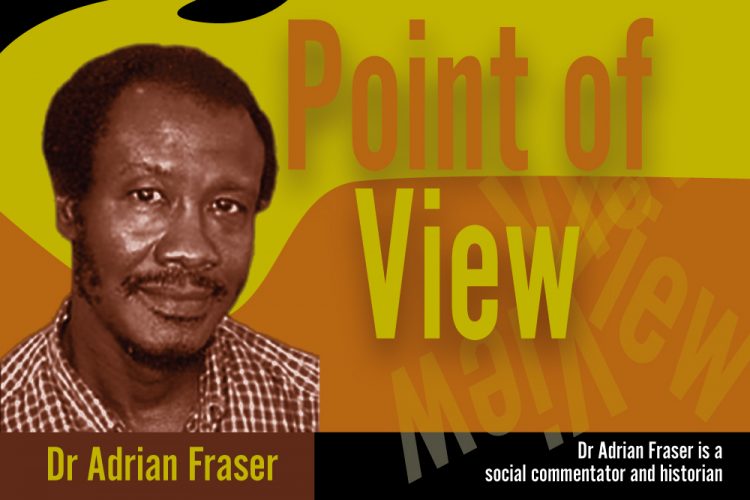Red Carpet Treatment for Royals amidst call for Reparations

I have first to acknowledge that the Queen is still our Head of State and is this year celebrating her Platinum Jubilee, but we are constantly reminded that we live in a post-colonial society, whatever that means. Prince Edward and his wife Sophie, the Earl and Countess of Wessex visited SVG as part of visits to the Commonwealth Caribbean by representatives of the Royal family. The image it presents is of the old colonial past, not a new era when the issue of Reparations and a move to Republicanism are very much on the Caribbean agenda. And please don’t feed me this baloney about us having missed our chance by not supporting the much talked about Referendum that presented us with a number of issues, some of which we liked and some we didn’t. We know the story of Grenada where the royal visits had to be called off because the Reparations committee wanted to meet with the couple and there were fears of mass protests.
In other countries they visited, we heard statements made by the Reparations Committees, some of them using the occasion to educate the public on the issue.
By the way do we have a Reparations Committee here? If we do, it appears to be remarkably silent. At one time our PM was head of the Caricom Reparations Committee and was regarded as one of the leaders of the Movement, so SVG’s silence baffles me. The heroes of the occasion were not the royal couple or those who came out to show their love for Royalty and Sophie’s grace as one put it, but the fifteen or twenty protesters who did SVG proud by reminding the couple that these are different times. In a recent article I wondered whether the rest of the Caribbean was ready to follow Holness of Jamaica and send the message that they were ready to move on. It really cannot be business as usual with Royalty.
Reparations isn’t only about the genocide of our indigenous people, many dying at Balliceaux where they were put to await their exile from their home, after enduring a long struggle to protect their land. The land was taken over and sold as estates to British planters on their way to setting up a slave society. The virgin land reaped enormous rewards, making St. Vincent one of the leading exporters of sugar between 1807 and 1824, in fact for most of that time second only to Jamaica. Then to crown it all, when slavery was about to end the owners of slaves were compensated, that is, given reparations to the tune of £20 million pounds, worth well over one hundred billion pounds today. The enslaved got no compensation but instead paid, as Hilary Beckles noted, ‘in kind’ compensation to the planters by continuing to work for them for another four years. Then we add to that a period of indentureship where East Indians were brought in to provide competition to the newly freed who were making demands for better wages and working conditions.
Hilary Beckles’ recent book, How Europe Underdeveloped the Caribbean- A Reparation Response to Europe’s Legacy of Plunder and Poverty has drawn on recent archival documents that reveal in the words of British officials what amounted to deliberate efforts to undermine first, the Federation, and then the independence of individual countries by underfunding them. Eric Williams and the other leaders of the Federal Movement, including Sir Arthur Lewis of St. Lucia sought reparations through capital funding for development. Beckles shows clearly, that from the very beginning Britain was only about extracting wealth from the Caribbean. This went through struggles with, in the case of SVG the Garifuna, and extracting wealth from the sugar economies that went to the development of Britain and the underdevelopment of the region. The disturbances of the 1930s with workers in St. Vincent being among the earliest to rise up, angered the British and propelled them to further undermine Caribbean development.
Sir Ellis Clarke, then Trinidad and Tobago’s Permanent Representative to the UN in an address to that body’s Committee on Colonialism in 1964 (quoted by Beckles) stated the case for reparations made by former colonies of Britain moving on to Independence:
“An administering power is not entitled to extract for centuries all that can be got out of a colony and when that has been done to relieve itself of its obligations by the conferment of a formal but meaningless- meaningless because it cannot possibly be supported- political independence. Justice requires that reparations be made to the country that has suffered the ravages of colonialism before that country is expected to face up to the problems and difficulties that will inevitably beset it upon independence.”
Britain’s response has been to express regret, but the region demands more. It needs a formal apology and an agreement on a Reparations Action Plan. Let us remember too that in 2001 the UN declared Slavery a Crime Against Humanity. Edward and his mother were not around but the family and country benefited from the involvement of their predecessors in the enslavement of Caribbean people.
Dr Adrian Fraser is a social commentator and historian









